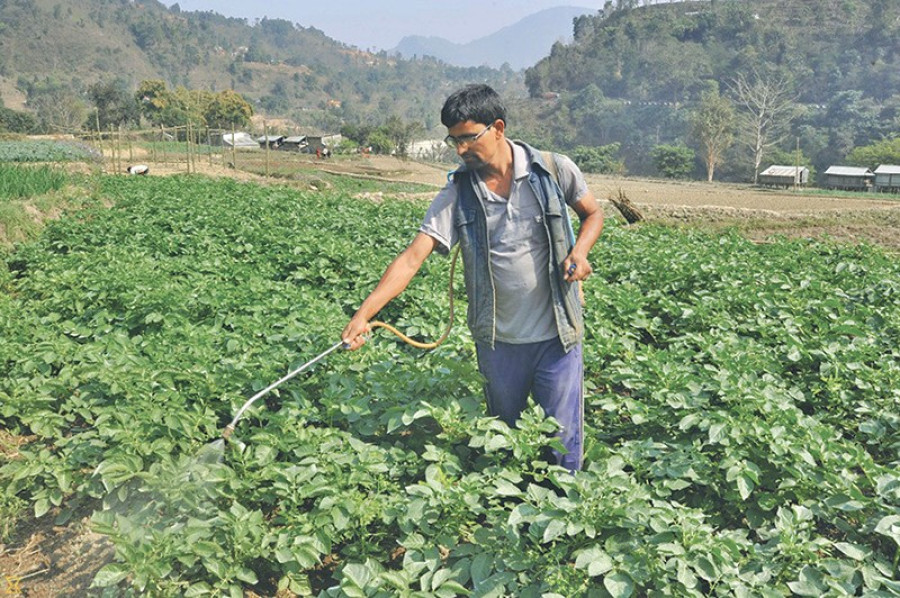Health
Authorities to resume pesticide test on fruits and vegetables
Testing of harmful organophosphate and carbamate had been halted due to lack of manpower and test kits
Arjun Poudel
Testing of the hazardous organophosphate and carbamate in vegetables and fruits will resume soon, says Central Agriculture Laboratory under the Department of Agriculture as it has finally purchased testing kits to conduct tests.
Due to a lack of testing kits and manpower, rapid bioassay of pesticide residue labs throughout the country had halted the testing of organophosphate and carbamate poisons for months.
“We have now purchased sufficient amount of testing kits. We will conduct rapid bioassay of pesticide residue soon,” Rajiv Das Rajbhandari, spokesperson at the laboratory told the Post.
The office has already supplied testing kits to Province 3’s lab in Kalimati and Province 2’s lab in Sarlahi.There are seven rapid bioassay of pesticide residue labs operating throughout the country—one each in five provinces (1, 2, 3, 4, 7), two in one province (province 5) and none in province 6. All the labs had either halted the testing or reduced the samples of fruits and vegetables because of limited equipment.
“We have reduced the sample size to two due to lack of testing kits,” Jageshwor Sharma, a technician at the Kalimati lab, told the Post. “We can conduct the test in full fledge from next week.”
Due to inability to test sufficient number of samples, the lab could not find residue of pesticide in vegetables and fruits.
“Use of pesticides is high in this season, as different types of insects and pests harm the vegetables and fruits,” Sharma added.
Doctors say long-term consumption of vegetables and fruits with high levels of pesticides can lead to renal failure, heart and lung diseases, mental health problems and cancer. Consumption of such fruits and vegetables may also affect pregnant women and harm foetus.
Pesticides are commonly used to kill insects, fungi, weed and other diseases, which damage plants and crops. Every year over 635 metric tons of 170 types of pesticide including insecticide, pesticide, fungicide, herbicide and biopesticide are brought into Nepal, according to Manoj Pokhrel, plant protection officer at the Plant Protection Directorate of the Ministry of Agriculture and Livestock Development.




 9.7°C Kathmandu
9.7°C Kathmandu















